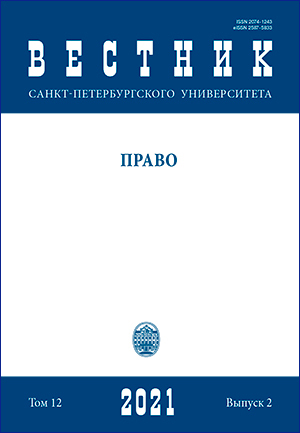Consultative meetings of non-Arctic states on the status of the Arctic
DOI:
https://doi.org/10.21638/spbu14.2021.204Abstract
The article, in the context of the contemporary status of the Arctic, examines the legal and political documents adopted by China, Japan and South Korea in regard to their arctic policy, including those agreed upon by these three States. The alarming reaction to such documents in the Arctic coastal states, firstly, in the USA and Canada, is also considered in the article. Relevant western scholars’ arguments are scrutinized, such as the increase of “China’s military power”; China’s “insatiable appetite” for access to natural resources in the Arctic; the argument that “China seeks to dominate” the Arctic and the situation when “the Arctic Council is split”; the notion that China makes other non-Arctic States create separate legal documents concerning the regime of the Arctic Ocean. The article concludes that the western interpretation of such documents is alarming only in relation to China. The research shows that up till now there are no grounds for such estimations of China’s negative role. However, statements by Chinese officials as cited in the article and some provisions stipulated in “China’s Arctic policy” contradict the common will of the Arctic coastal states in regard to the legal regime of the Arctic Ocean as reflected in the Ilulissat Declaration of 2008. In such a dynamic legal environment, new instruments of collaboration are in demand, which might involve China and other non-Arctic states in maintaining the established legal regime of the Arctic. Thus, the new instruments would deter the creation (with unpredictable consequences) by China, Japan and South Korea of new trilateral acts relating to the status of the Arctic.
Keywords:
non-Arctic states, Arctic states, legal regime of the Arctic, the Arctic Council, separate arrangements, alarming responses
Downloads
References
Downloads
Published
How to Cite
Issue
Section
License
Articles of "Vestnik of Saint Petersburg University. Law" are open access distributed under the terms of the License Agreement with Saint Petersburg State University, which permits to the authors unrestricted distribution and self-archiving free of charge.






